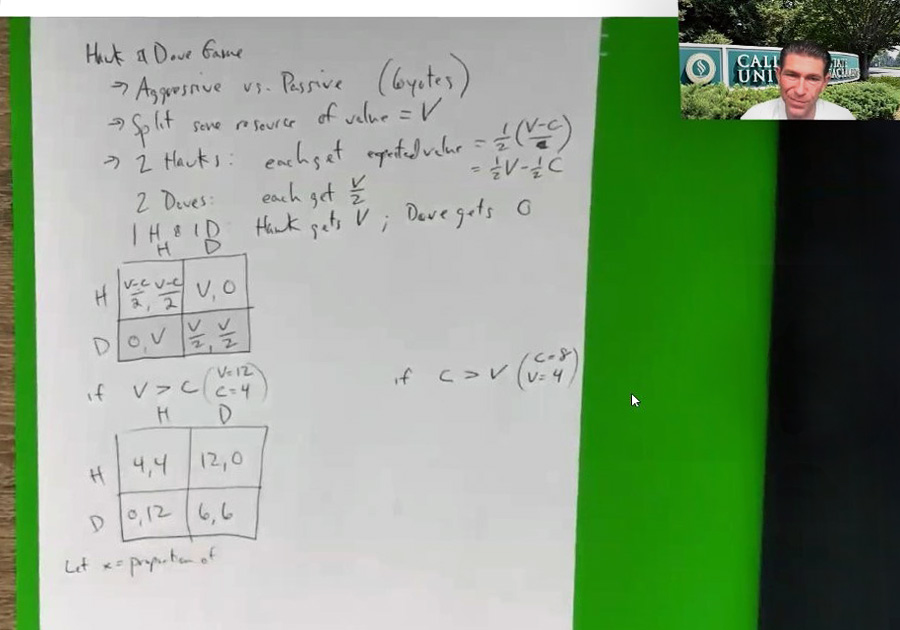 Faculty and other teachers in this year's Summer Youth Programs, including David Lang (seen at top right), have converted classes to virtual formats to continue serving local students. (Photo courtesy of David Lang)
Faculty and other teachers in this year's Summer Youth Programs, including David Lang (seen at top right), have converted classes to virtual formats to continue serving local students. (Photo courtesy of David Lang)
By Jonathan Morales
When the COVID-19 pandemic forced school closures beginning in March, Jill Matsueda was initially optimistic about the potential for Sacramento State’s Summer Youth Programs to offer welcome respite to local kids and teens cooped up in their homes throughout spring.
That optimism changed first to heartbreak when she realized that the programs, held on campus each June and July, also would be affected by social-distancing protocols remaining in force into summer. Her keen disappointment, however, changed to determination when she and other University leaders decided to forge ahead and offer the much-loved courses online.
"For me, it was a no-brainer. We are central to this community,” said Matsueda, director of Academic Programs in the College of Continuing Education, which runs summer programs. “They have to be able to turn to us. I don't think we should be hunkering down. This is when we should be very visible and be a beacon for the community."
Summer Youth Programs is a new division bringing together two longstanding programs, Summer Academies for High School Students and Academic Talent Search (ATS), under one umbrella. Summer Academies provide career-focused learning opportunities for ninth- through 12th-graders. ATS offers enrichment courses for seventh- through 10th-graders on topics such as computer science, English, and mathematics.
This summer, Sacramento State is offering seven Summer Academies – including Coding, Cyber Security, Entrepreneurship and Innovation, and Future Teachers – and seven Academic Talent Search classes covering topics such as Contemporary Web Design, Creative Writing, and Strategic Thinking & Game Theory.
More than 300 students have signed up for the two programs so far, Matsueda said. Students can register right up to the day a course begins, though some courses are wait-listed. The courses run for a week at a time, beginning mid-June and running through July.
Using money typically reserved for scholarships, CCE lowered fees for all 2020 registrants, something Matsueda said was prompted by the knowledge that many families are struggling with reduced incomes from layoffs or reduced hours caused by the pandemic.
Training and resources for instructors – primarily Sacramento State faculty – have been available through the college’s Digital Learning and Technology Solutions unit, and an orientation was held recently for instructors to provide assistance in preparing their material for online instruction.
David Lang, chair of the Economics Department, is returning to ATS having taught once before as well as serving as an informal program advisor. He’s been adapting his class, Strategic Thinking & Game Theory, for online instruction, something he says was made a little easier given the virtual teaching experience he gained during the spring semester.
The class is typically a mixture of lecture, interactive activities, and videos highlighting real-world or fictional examples of strategic thinking or game theory. The lecture and video portions – think the tic-tac-toe scene in the movie “War Games” or the ferry scene from “The Dark Knight,” which illustrates the prisoner’s dilemma – transfer relatively easily to virtual instruction. For the interactive parts, Lang will incorporate various online tools such as Zoom’s “breakout room” feature to encourage small-group discussion, and web versions of games and activities that he would typically do in the classroom.
Lang said it is important for Sacramento State to continue these programs and not let kids lose out on an important learning opportunity.
"We don't want to leave a group of kids out there that can be inspired and just not inspire them because the world is falling apart,” he said. “We have a role to play as an institution, to keep the fires burning, to keep things moving forward, to not miss an opportunity to capture and inspire a group of future college kids."
Another major benefit of Summer Academies and Academic Talent Search is it brings K-12 students to Sacramento State to experience, even for just a week, what it’s like to be on a college campus, learning from college professors. Despite the switch to online learning, Matsueda says participants will still get to see what life as a Hornet is like.
"I would love to see the kids on campus. I love seeing that every summer,” she said. “But this is a great alternative, and they can still get that flavor of Sac State and what it's like to be here."
